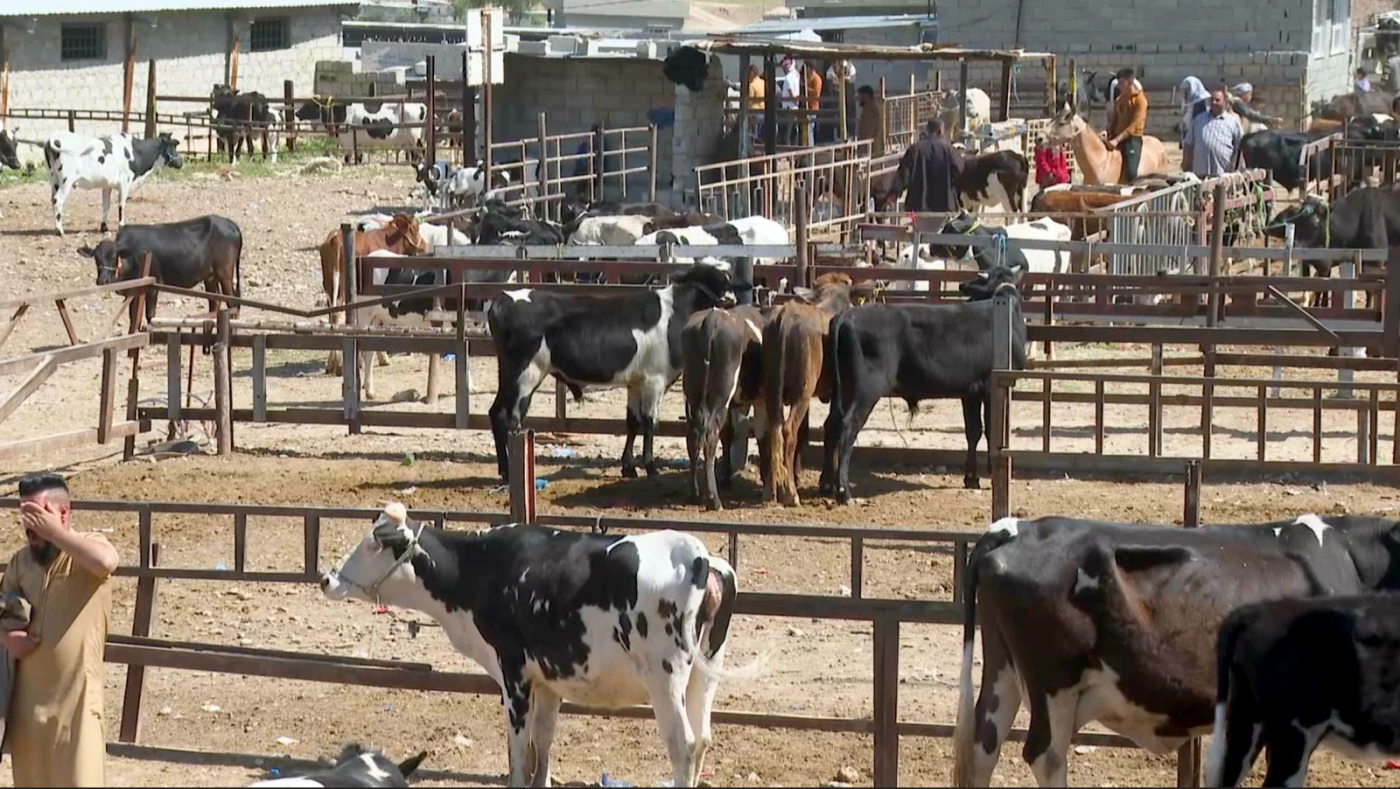ERBIL, Kurdistan Region of Iraq - Herders and others working in the livestock trade in Kirkuk are blaming the Iraqi government for a hemorrhagic fever outbreak that has already claimed the lives of two people in the city this year.
Hemorrhagic fever is an infectious viral disease, often transmitted from animals to humans, with symptoms that can range from mild to severe and life-threatening, with those working intimately with animals facing an elevated risk of infection.
Certain variants of the viral infection can also be transmitted through mosquito or tick bites, while others spread from person to person through infected body fluids, such as blood, saliva, and semen.
Saman Manaf, a herder who regularly visits Kirkuk's livestock market to buy and sell animals, criticized the government for not taking necessary steps to curb the spread of the deadly disease.
“The government has not helped us yet. Until this very moment, it has not provided any pesticides or vaccines to any livestock owner to stop the spread of tick bites in animals,” Manaf told The New Region, adding, “When you use vaccines and disinfectants, the tick bites will stop spreading."
“If the government does not provide it, where can I obtain it?” he lamented.
“The government does not help at all,” said Ahmed Faris, another livestock owner. “Those pesticides that are sold on the market are of no use. They do not respond when using them. We do not know whether or not they are expired.”
In addition to the two deaths in Kirkuk, 12 other confirmed cases of hemorrhagic fever have been reported across Iraq, including another two cases in the disputed city, according to the Iraqi health ministry.
In a bid to stop the spread of the disease, local health authorities in Kirkuk have implemented a series of measures, including prohibiting the slaughter of animals outside designated slaughterhouses.
“People will have to buy meat in healthy places and avoid coming into contact with animals,” Sabah Namiq, Director of Public Health at the Kirkuk Health Department, told The New Region.
Namiq went on to warn, “Every single animal is now suspected to have been infected with the virus, especially those animals that have tick bites on their udders and other sensitive areas of their body.”
Additional reporting by Rokan Mahmood



 Facebook
Facebook
 LinkedIn
LinkedIn
 Telegram
Telegram
 X
X


